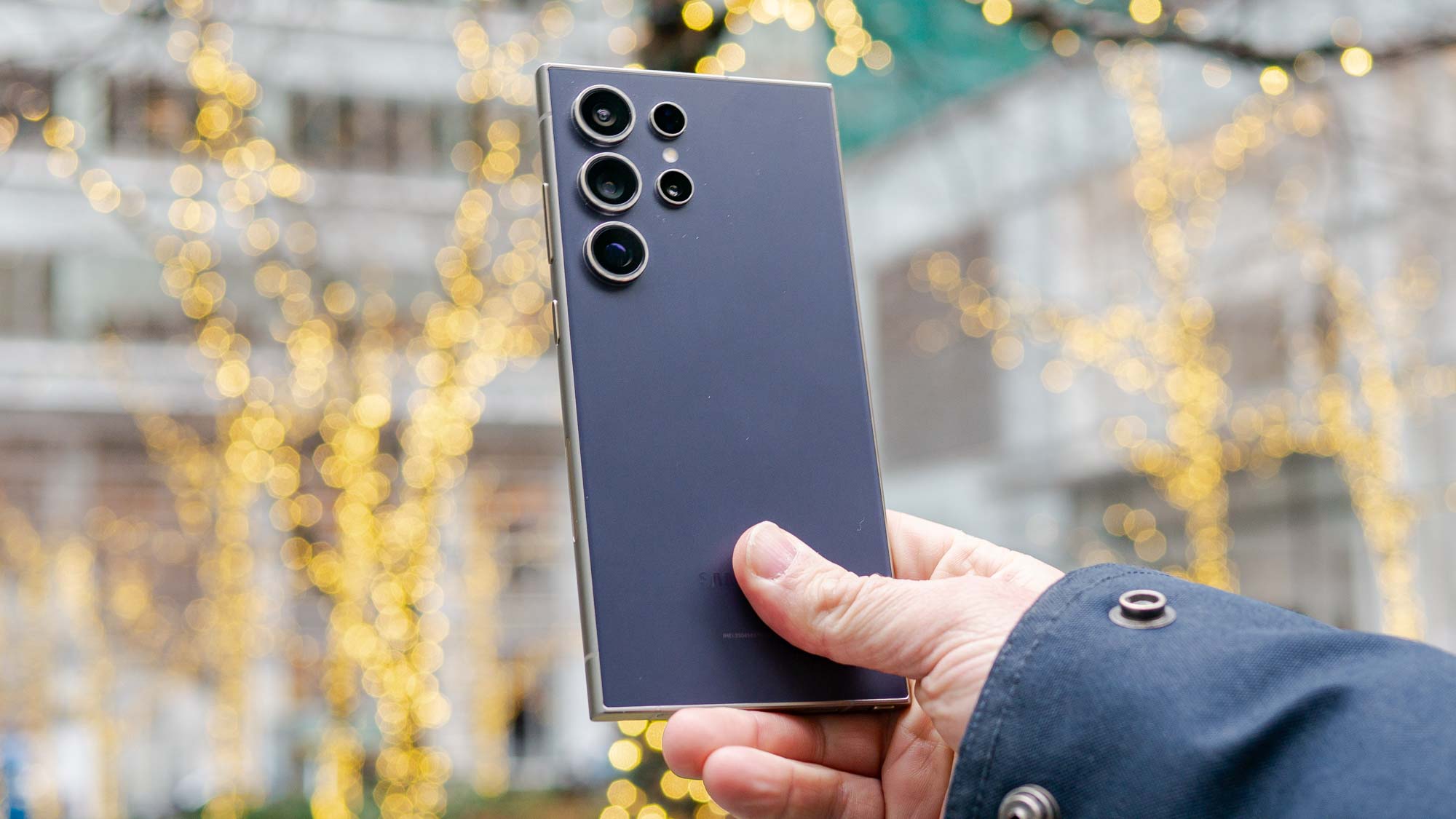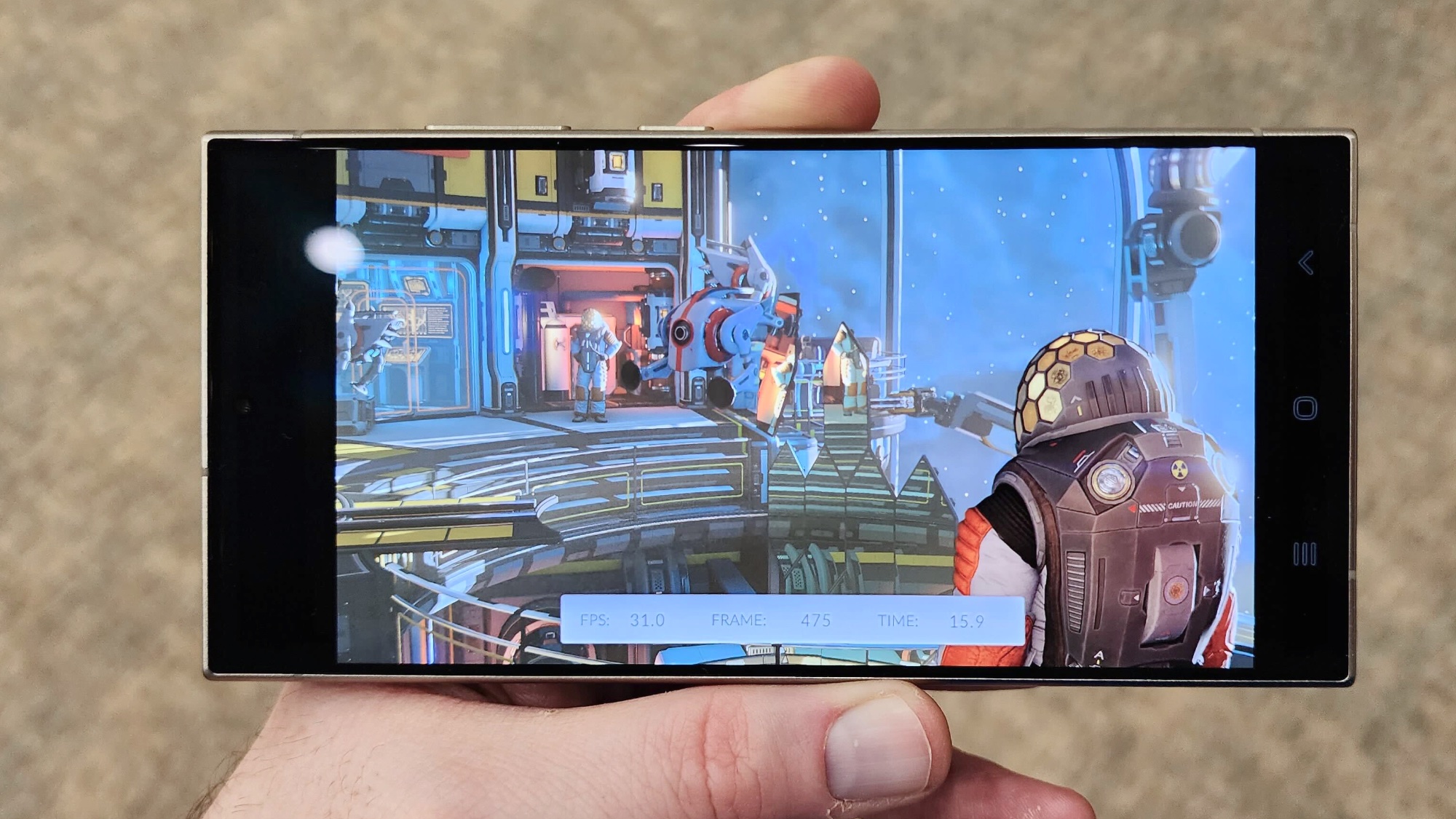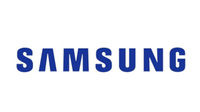Samsung Galaxy S24 Ultra benchmarks — the iPhone 15 Pro has met its match
Samsung's best phone out-muscles the iPhone in some key speed tests

Samsung's days of being pushed around by Apple — at least when it comes to phone performance — could be at an end. As part of our Samsung Galaxy S24 Ultra hands-on testing, results from our benchmarks are in, and they indicate that Apple's top-of-the-line iPhones may have met their match in Samsung's latest flagship phones.
Past Galaxy S benchmarks have followed a familiar pattern — Samsung's phones post the best numbers of any Android device, but lag far behind the iPhone and their Apple-designed A series chips. But the Galaxy S24 Ultra, running on a Snapdragon 8 Gen 3 breaks that pattern.
On a couple key performance tests, the Galaxy S24 Ultra posts better results than the iPhone 15 Pro, Apple's top-performing phone. The A17 Pro-powered iPhone still finished on top in other areas, but this battle of the best phones is a really close fight.
That's good news for the Galaxy S24 and Galaxy S24 Plus, at least in North America. Those phones also run on the Snapdragon 8 Gen 3, so we would expect similar numbers to what the Ultra just did. (In other parts of the world, the Galaxy S24 and S24 Plus feature an Exynos 2400 system-on-chip, and we don't know how those phones will perform just yet.)
For Apple, these results might serve as some sort of wakeup call. While the iPhone 15 Pro models are still very fast phones, completing real-world tasks much faster than the Galaxy S24 Ultra in our testing, Apple can no longer claim the it builds the undisputed speed champ among mobile devices.
Let's dig deeper into the numbers of our Galaxy S24 Ultra benchmark results.
Galaxy S24 preorders: from $249 w/ trade-in @ Samsung
Free $25 credit! Samsung is offering up to $550 off its Galaxy S24 with trade-in. Plus, you'll get a free storage upgrade and $25 Samsung credit. It features a 6.2-inch AMOLED 120Hz display, Snapdragon 8 Gen 3 chipset, 8GB of RAM, and 128GB of storage. On the camera front, you get 50MP main, 12MP ultrawide, and 10MP telephoto (3x optical zoom) rear lenses and a 12MP front camera.
Galaxy S24 Ultra benchmarks: Specs comparison
The Snapdragon 8 Gen 3 powering the Galaxy S24 Ultra deserves much of the credit for that phone's performance muscle. But it's helped out by the fact that Samsung packs 12GB of memory into its phone. In contrast, the iPhone 15 Pro uses 8GB of RAM. (That number comes from teardowns of the phone; Apple doesn't list the memory included with its devices.)
Sign up to get the BEST of Tom's Guide direct to your inbox.
Get instant access to breaking news, the hottest reviews, great deals and helpful tips.
Here's a look at what's inside other top phones that the Galaxy S24 Ultra competes with, as well as the Galaxy S23 Ultra that it replaces in Samsung's lineup.
| Phone | Chipset | RAM |
| Samsung Galaxy S24 Ultra | Snapdragon 8 Gen 3 for Galaxy | 12GB |
| Samsung Galaxy S23 Ultra | Snapdrgon 8 Gen 2 for Galaxy | 12GB |
| iPhone 15 Pro | A17 Pro | 8GB |
| iPhone 15 Pro Max | A17 Pro | 8GB |
| iPhone 15 Plus | A16 Bionic | 6GB |
| Asus ROG Phone 8 Pro | Snapdragon 8 Gen 3 | 24GB |
| Google Pixel 8 Pro | Tensor G3 | 12GB |
Galaxy S24 Ultra benchmarks: Geekbench scores
Geekbench is a split decision between Samsung and Apple devices. But considering that Apple has traditionally dominated this test of overall performance, Samsung will be happy to see its phone on top in one area.
| Phone | Geekbench 6 single-core | Geekbench 6 multicore |
| Samsung Galaxy S24 Ultra | 2,300 | 7,249 |
| Samsung Galaxy S23 Ultra | 2,091 | 5,511 |
| iPhone 15 Pro | 2,890 | 7,194 |
| iPhone 15 Pro Max | 2,783 | 6,945 |
| iPhone 15 Plus | 2,551 | 6,280 |
| Asus ROG Phone 8 Pro | 1,339 | 6,543 |
| Google Pixel 8 Pro | 1,163 | 2,745 |
In Geekbench 6's single-core test, it's business as usual, with the iPhone 15's result of 2,890 handily beating the Galaxy S24 Ultra's 2,300 score. The Ultra's single-core result did improve by about 10% compared to the Galaxy S23 Ultra, which uses a Snapdragon 8 Gen 2 system-on-chip.
The Geekbench 6 multicore test was where the Galaxy S24 Ultra really showed off some big performance gains. Samsung's phone posted a score of 7,249, just topping the iPhone 15 Pro's result of 7,194. (Interestingly, the iPhone 15 Pro Max posted lower Geekbench scores than the Pro model.) That gap isn't large enough to notice when you're running the phones side by side, but it's a big step for Samsung to even be in the same ballpark as Apple, let alone narrowly ahead.
Apple's less expensive flagships rely on an A16 Bionic, and while the iPhone 15 Plus also beat out the the Galaxy S24 Ultra's single-core result, it lagged the new Samsung phone in the multicore test.
The ROG Phone 8 Pro is another Android device featuring Snapdragon 8 Gen 3 silicon, but its single and multicore Geekbench results (1,339 and 6,543, respectively) were noticeably behind what the Galaxy S24 Ultra turned in. We'd assume that's because the version of the Snapdragon 8 Gen 3 inside the S24 Ultra has been overclocked, much like last year's Snapdragon 8 Gen 2 was.
Galaxy S24 Ultra benchmarks: Graphics testing

3DMark's Wild Life Unlimited test gives us a pretty good idea of how a chipset's GPU performs by running a graphically intensive test and calculating the frames per second produced by each phone. The higher the FPS, the better your score.
| Phone | Wild Life Unlimited Score | Wild Life Unlimited Frames Per Second |
| Samsung Galaxy S24 Ultra | 20,627 | 123.5 |
| Samsung Galaxy S23 Ultra | 14,611 | 87.5 |
| iPhone 15 Pro | 15,747 | 94.3 |
| iPhone 15 Pro Max | 15,399 | 92.2 |
| iPhone 15 Plus | 12,453 | 74.6 |
| Asus ROG Phone 8 Pro | 18,388 | 110.1 |
| Google Pixel 8 Pro | 8,797 | 52.7 |
The Galaxy S24 Ultra simply smokes the competition here, though that's not a surprise. When it debuted last year, the Galaxy S23 Ultra rode the Snapdragon 8 Gen 2's GPU improvements to Wild Life results that topped many other phones including some iPhones. That's exactly what happened with the upgraded Galaxy S24 Ultra.
The S24 Ultra's Wild Life Unlimited score of 123.5 frames per second is a 31% improvement over the iPhone 15 Pro's 94.3 fps result. It's also better than the 110.1 fps result turned in by the Asus ROG Phone 8 Pro, a handset specifically tailored for gaming.
Galaxy S24 Ultra benchmarks: Video transcoding
We run a real-world test when we put phones through benchmarks that involves Adobe Premiere Rush. Using that app, we transcode a 4K video clip to 1080p, timing the results. It's a test the iPhone usually dominates, and for all the other performance gains made by the Galaxy S24 Ultra, that remains the case.
| Phone | Adobe Premiere Rush Transcode Time (Mins:Secs) |
| Samsung Galaxy S24 Ultra | 0:42 |
| Samsung Galaxy S23 Ultra | 0:39 |
| iPhone 15 Pro | 0:25.5 |
| iPhone 15 Pro Max | 0:24.5 |
| iPhone 15 Plus | 0:24.5 |
| Asus ROG Phone 8 Pro | N/A |
| Google Pixel 8 Pro | 0:51 |
The S24 Ultra took an average of 42 seconds to transcode the video. That's actually 3 seconds slower than the Galaxy S23 Ultra's time from last year. We couldn't run the test on the Asus ROG Phone 8 Pro, as Premiere Rush would crash a few seconds into the operation.
Needless to say, the iPhone is still the champ here, whether you go for the A17 Pro-powered Pro model (25.5 seconds) or one of the A16 Bionic-powered models (24.5 seconds on the iPhone 15 Plus). The iPhone 15 Pro Max also posted a 24.5 second result on this test, so Apple's phones perform pretty consistently here.
Galaxy S24 Ultra benchmarks: Outlook
Even with the lackluster video transcoding result, the Galaxy S24 Ultra turned in the best performance we've seen yet rom an Android phone — so good in fact that it even topped the fastest iPhone in some areas.
Take that good benchmark news along with the Galaxy S24 Ultra's stellar battery life results — only two gaming phones from Asus rank higher than the S24 Ultra on our best phone battery life list — and it's clear that whatever you might think about Samsung's hardware improvements in the S24 lineup, upgrading to a Snapdragon 8 Gen 3 is turning out to be a critical change.
And now the ball is in Apple's court to see how it responds this fall with the chips powering the iPhone 16 models. Reportedly, Apple will use a new A18 chipset in each phone, with more powerful versions slated for the iPhone 16 Pro and iPhone 16 Pro Max.
More from Tom's Guide
Philip Michaels is a Managing Editor at Tom's Guide. He's been covering personal technology since 1999 and was in the building when Steve Jobs showed off the iPhone for the first time. He's been evaluating smartphones since that first iPhone debuted in 2007, and he's been following phone carriers and smartphone plans since 2015. He has strong opinions about Apple, the Oakland Athletics, old movies and proper butchery techniques. Follow him at @PhilipMichaels.


